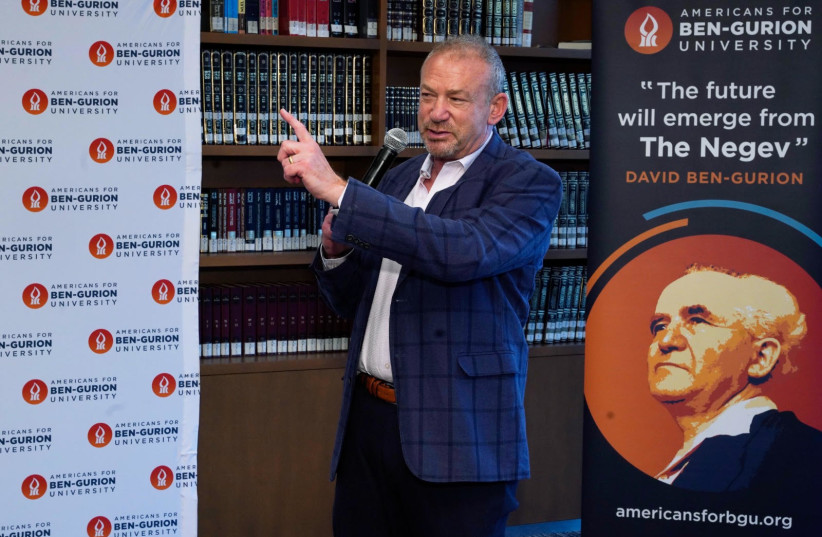A panel of Jewish organizational leaders discussed the best approaches to talking about Zionism and the State of Israel in 2023 at The Jerusalem Post Conference in New York on Monday.
It was moderated by Zvika Klein, the Post’s Jewish World Analyst, and was entitled “21st Century Zionism: How to Talk About Israel in 2023.”
Participants included Moti Kahana, CEO, GDC Logistics & Rescuer of Jews from War-Torn Countries; Omri Attar, COO, ELNET; Doug Seserman, CEO, Americans for Ben-Gurion University; and Rabbi Ari Lamm, CEO, Bnai Zion and Co-Founder of SoulShop.
How to talk about Zionism and Israel in 2023?
Klein began the discussion by asking Seserman for his assessment.
“The generations don’t all think alike,” he said. “Something quite sobering that we need to understand is that the wealth will transfer from the current generation. But even though the wealth will transfer, the Jewish values may or may not, and how those values are represented vis-à-vis Israel will differ.”

He pointed out that in order to market a “21st-century Zionist message,” it has to resonate with the current generation, and it Israel may not resonate in the same way that it did with their grandparents. “Instead of arguing about the politics of what might be wrong, we need to rally around what’s right,” he said.
Ben-Gurion University, unlike other universities in Israel, he added, is the only one with a mandate to develop a region – the Negev. “If I were to say what will connect the next generation,” he said, “it needs to be inspiration. David Ben-Gurion said that at the end of the day, Israel would be judged not by its material wealth or its military might, but by its moral inspiration.”
Rabbi Ari Lamm, who has succeeded in reaching the younger generation through social media, says that those who want to influence the discussion on Israel need to do it through their smartphones.
“We need to be on their phones because that’s where all the action is.” Lamm also added that the key to success is ensuring that one’s message is distributed widely. “You could have the best content in the world., but if you don’t have distribution, it’s utterly meaningless.”
Moti Kahana, whose organization rescues Jews from war-torn countries like Syria, Yemen, Iraq, Afghanistan and Ukraine, and brings them to Israel, said that for him, Zionism is bringing these Jews back to the Holy Land. He said that the relationship between Israel and the US rests on three pillars – the American Jewish community, democracy and security.
“If democracy in Israel does not stay as we know it. It will actually weaken the relationship between Israel and the US,” he said.
Klein next quizzed Omri Attar, COO of ELNET, an NGO dedicated to strengthening Europe-Israel relations based on shared democratic values and strategic interests, who said that people need to be much more proactive about Zionism.
“We need more doers,” he noted. People talk a great deal about Zionism, he said, but don’t do enough. Attar mentioned that ELNET actively promotes Israel by bringing European political leaders and young leaders to Israel to see for themselves and explain about antisemitism and the connection between the two.